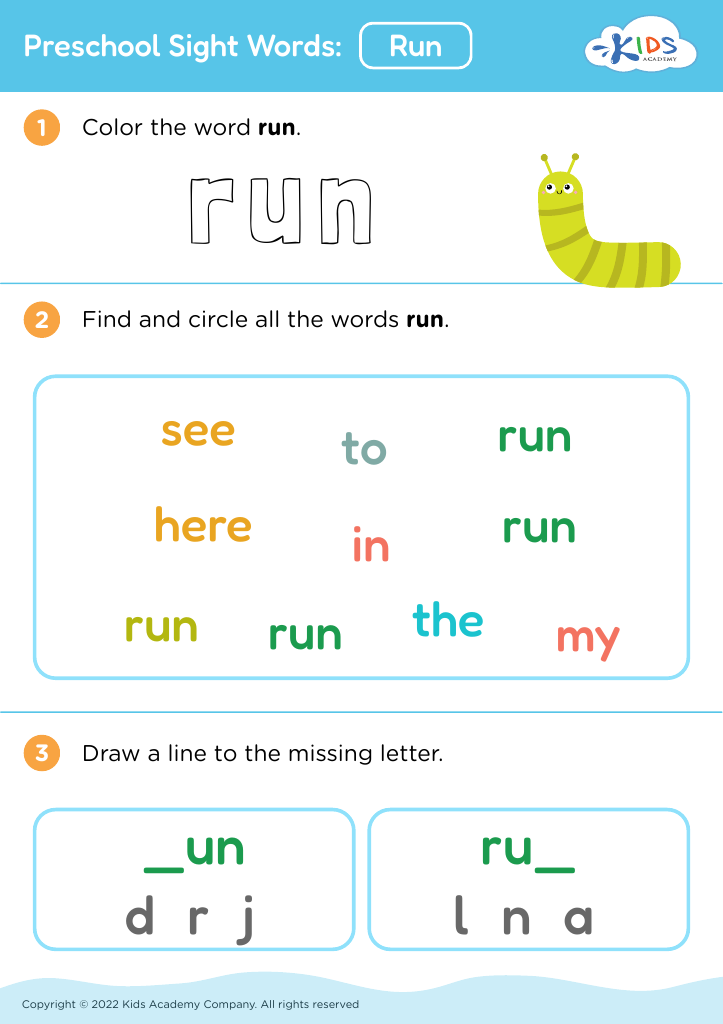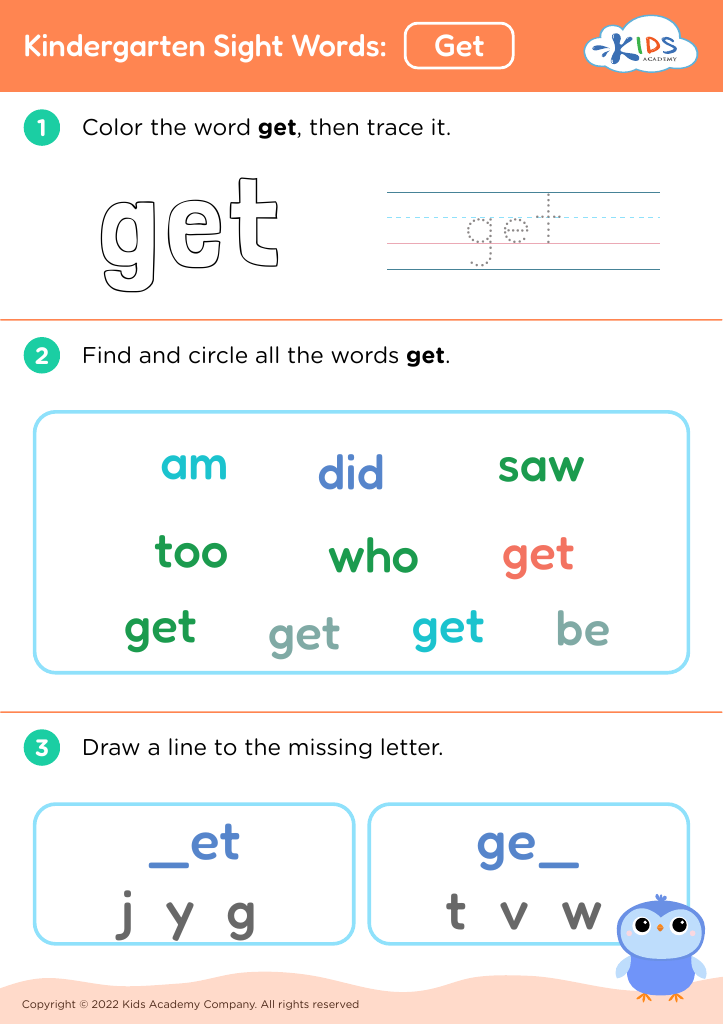Fraction simplification Reading Worksheets for Ages 3-5
5 filtered results
-
From - To
Discover our engaging Fraction Simplification Reading Worksheets designed specifically for children ages 3-5. These interactive activities introduce young learners to the foundational concepts of fractions in a fun and engaging way. Our worksheets encourage early reading skills while making complex ideas simpler through colorful illustrations and relatable examples. Perfect for parents and educators, these resources support early childhood education by promoting critical thinking and Cognitive skills. Foster a love for learning in your little ones as they explore the world of fractions, helping them develop essential mathematical understanding and literacy skills at the same time. Start simplifying fractions today!
Understanding fraction simplification is important for children as they begin to build foundational math skills, especially as early as ages 3 to 5. Parents and teachers play a crucial role in this developmental stage. Simplifying fractions introduces young learners to concepts of part and whole, teaching them to recognize relationships between numbers visually and mathematically.
First, it builds critical thinking. As children learn to simplify fractions, they practice identifying patterns and making connections, foundational skills that apply across all learning areas. This mathematical reasoning fosters a growth mindset, encouraging persistence and problem-solving.
Moreover, introducing fraction concepts through engaging stories or relatable scenarios allows young children to grasp these ideas naturally. When parents and teachers incorporate fraction simplification into playful activities, it makes learning enjoyable, thereby increasing engagement. This early exposure lays the groundwork for more complex math concepts in later years, ensuring that children feel confident as they progress.
Ultimately, fostering an understanding of fractions in early childhood not only connects math to the real world but also nurtures essential cognitive skills. Thus, engaging with this topic is crucial for parents and teachers aiming to create a solid mathematical foundation for young learners.



























